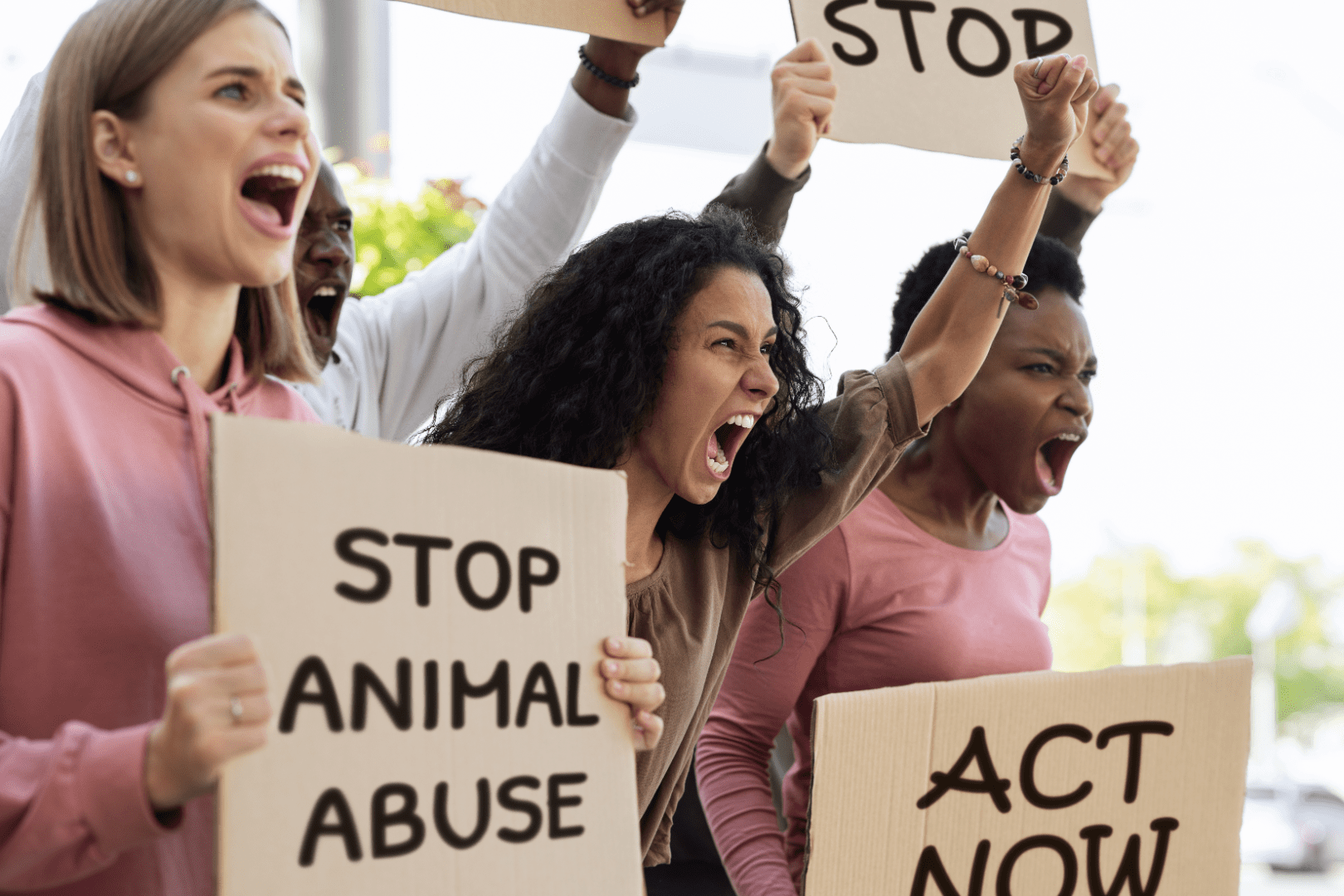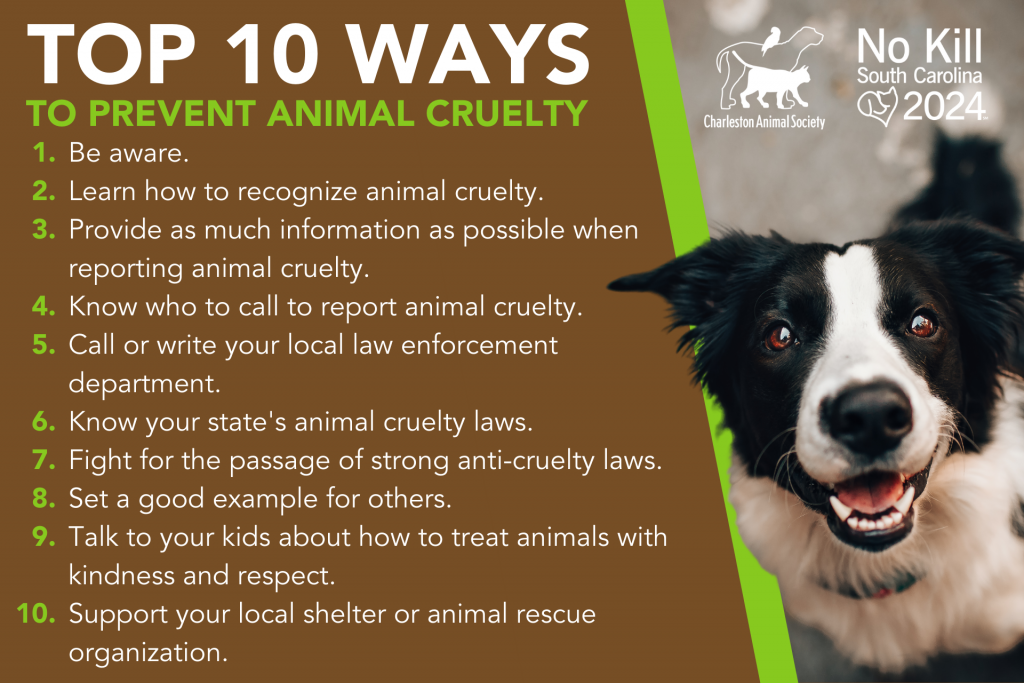O manu saua o se mataupu taua tele o se tulaga e malaia ai le tatou sosaiete, ma le anoanoai o manu mama uaina le fiu e tuʻuaʻi, sauaina, ma le faʻaaogaina. O se faʻafitauli o le a oʻo atu i tua atu o le le fiafia, pei ona atagia ai se le mautonu loloto i le loloto o le faʻamalositino i le soifuaga o isi tagata ola. I le iʻuga o lenei, o le matafaioi a faʻalapotopotoga o manu ua atili ai ona aoga nai lo le isi lava taimi. O nei faʻalapotopotoga e faia se tiute taua i le fautuaina o aia tatau ma le puipuia o manu, pei ona latou galulue ai ma le leoa i manu. O a latou taumafaiga, e le gata i latou na laveaʻi ma toe faʻaleleia manu punou pe taumafai foi e faʻaoso le taua o manu e togafitia manu. I lenei mataupu, tatou te matamata i ai i le matafaioi taua, faʻapea o faʻalapotopotoga mama o manu na fai i le faʻavaveina o manu sa foʻi, ma e faʻatupu ai le alofa mutimutivale.

O le auupega a manu e maua ai le lagolago taua
O nei faʻalapotopotoga e taua tele le sao i totonu o tuatusi ma faʻatutuina o le atunuʻu sauaga e ala i a latou tele tele o tautua ma aʻoaʻoga. O nuu lelei o manu e maua ai le lagolago lautele i le faʻaolaina ma le toe faʻaleleia o manu, o loʻo maua ai ma le tausiga faafoʻaga, ma maua ai ni fale e fiafia iai. Ma le isi, latou galulue malosi e ala i le faʻalauiloaina o tulaga e uiga i mea totino o meaola ma alaalana mo tulafono malosi ma le faʻaaogaina. E ala i polokalame faaetifitele ma aapa atu, o nei faalapotopotoga e agavaa e faamalosia ai se lotu agaalofa i le tulaga ma le faaaloalo tagata. O taumafaiga le vaivai o manu i le tamaoaiga o loʻo faia se suiga tele i olaga o manu e le mafaitaulia o tatou i le aotelega o o tatou nuʻu.
O aʻoaʻoga o le ki i mea fou
O taumafaiga puipuia ma le malosi o mea e faʻamalieina ai le tele o manu i le mamafa. E ala i le tuʻuina atu o le sitiseni ma le iloa lautele e uiga i le manuia o manu ma le tiute ole pule o manu, o faʻalapotopotoga uelefea e mafai ona faʻamalosia ai tagata e faia ma le agaalofa. O aʻoaʻoga faale-aʻoga e mafai ona amata mai polokalame a le aʻoga e aʻoaʻo ai fanau e uiga i le taua o le togafitia o manu ia avea ma faʻataʻitaʻiga i mataupu matutua ma le faʻaaloalo. I le suia o tagata taʻitoʻatasi ma le tomai talafeagai, aʻoga, o aʻoga se galuega taua i le suia o latou manatu ma amioga, i tulaga o sauaga mai le tutupu mai o le tulaga muamua. O taimi uma o aʻoga, o manu i le tausiga o faʻalapotopotoga e mafai ona fausia se galuega faʻafailele o le agaalofa ma le alofa i totonu o atinaʻe ma le agaga fiafia i meaola uma mo manu uma.
Lipotia polokalame fesoasoani i le faailoaina
Lipotia faiga fesoasoani i le faailoaina o faʻamatalaga ma le lelei auala mo tagata taʻitoʻatasi e lipoti atu faʻataʻitaʻiga o manu leaga poʻo masalomia masalosalo. O nei faiga e fai ma mea taua o mea uma, mo faʻalapotopotoga uelefea a manu i le aoina o faʻamatalaga ma molimau, faʻatonutonu i latou e faia gaioiga talafeagai. E ala ai ona lipotia atu faʻafeiloaʻiga tau lautele e lipoti atu soʻo ni popolega poʻo ni taulaʻi, e mafai ona alualu soʻo le saogalemu o nei faʻalapotopotoga i mataupu tau sau, faʻamautinoaina le saogalemu ma le ola o meaola o meaola. E le gata i lea, o lipoti o lipoti e le gata fesoasoani i le faʻailoaina o mataupu o tagata o le sauaina ae faʻapea foi i le tele o ituaiga o loʻo iai le lautele. O lenei faʻamatalaga e mafai ona faʻaoga e faʻatinoina ai fuafuaga faʻatonutonu ma faʻamalosia tulafono mo tulafono malosi atu ma tulafono faʻamalosia. Aotelega, lipotia polokalama e taua tele i taumafaiga a manu ile soifua maloloina e talepeina aia a manu.
O Tulafono o Kitric ma le Faamalosia Manaomia
Tulafono Faʻatulagaina ma Faʻamalosia E Taua I le Faʻamau o manu i le taufaʻamataʻu o manu ma faʻamautinoaina le puipuia o aia tatau a le ola. E ui o taumafaiga a le au faʻalapotopotoga aʻiaʻi o manu e tele naua i tuatusi o taimi, e masani lava ona faʻaalu i latou mafaia ona umiaina ni au tausi aitalafu. E ala i le fautua mo ma faʻatinoina tulafono o tulafono, o loʻo iai le avanoa sili atu o puipuiga ma tuʻuina atu se malosi maualuga o le tulafono mo le talimalo. Ma le isi, faʻaleleia faiga faʻamalosia e talafeagai e mautinoa ina ia mautinoa o nei tulafono e faʻatinoina lelei ma mulimulitaʻia. E mafai ona aofia ai siʻitia Faʻaolaʻiga mo Malo o manu i le va o faʻalapotopotoga a le tulafono ma faʻalapotopotoga a le manuia, ma faʻasalaga faʻamalosia tagata. Naʻo le aʻafia o loʻo iai se puipuiga ma faʻamalosia e mafai ai ona tatou faia se sosaiete e faʻatauaina moni ma puipuia le soifua maloloina o manu.
Galulue faʻatasi ma tulafono faʻamalosi
O le galulue faʻatasi ma tulafono e faʻamalosia e taua tele i taumafaiga a le uelefea o manu i le taua o manu faigata. E ui ina faia e nei faalapotopotoga se vaega taua i le faʻatuina, laveaʻiina o manu, ma ia avea le lagolago, e masani lava latou te le taʻua o le pule ma punaoa ina ia fetalai atoatoa ai le faʻafitauli. E ala i le faʻatuina o se faiga faʻapaʻaga malosi ma faʻalapotopotoga faʻamalosia tulafono, o nei faʻalapotopotoga e mafai ona faʻamalosia lo latou poto masani ma galulue faʻatasi e suʻesuʻe ma faʻamaonia mataupu o manu saua. O ofisa faamalosia o tulafono, ma a latou malosiaga faʻaletulafono ma manaʻoga suesue, e mafai ona tuʻuina atu le faʻamalosia ma le tulafono faʻamalosi faʻasaga i tagata aitalafu. O lenei toʻaga lautele e mautinoa ai mafuaʻaga o le faʻaleleia o faʻalapotopotoga a manu ma tulafono e aʻafia i latou e faia ai manu ma o latou tutotonu. O i laʻua soʻomata e taua i le fausiaina o se matataʻu solo nei faasaga i manu sa sauaga ma faʻamalosi ai se sosaiete e faamuamua i mea ola uma.
Lavea ma Toe Fuataina o manu
O faʻalapotopotoga uelefea a manu i le laveai ma le faʻaleleia o manu ua sauaina i sauaga ma sauaina. O nei faʻalapotopotoga faʻamaumauga masani ma filifiliga faʻataʻitaʻi e galulue toilalo ma lagona faafomaʻi, tausiga, ma lagona i nei malumalu vaivai. E ala ia latou taumafaiga, o manu ua tuuina i ai le lona lua avanoa i le olaga, e aunoa ma le tiga ma mafatiaga na latou onosaʻia na latou onosaʻia atoa. Ole faʻagaioiga ole toe faʻaleleia e le gata ona faʻatinoina manuʻa tino ae faʻapea foi ona faʻamaloloina foʻi manu o le mafaufau, ma faʻamautinoaina manuʻaga laveaʻi. E ala i le tuuto o a latou punaoa ma le poto masani i le laveaʻi ma toe faʻaola o manu, o nei faʻalapotopotoga o loʻo lagolagoina le faʻamoemoe toe faʻafoʻi ma le malosi mo tagata uma.
Faʻalauiloaina le nafa o fagafao
Ina ia faalauteleina la latou misiona o le siiina o le manuia o manu, faʻalapotopotoga foi o loʻo avea ma faʻailoga taua i le aʻoaʻoina o tagata lautele e uiga i le tiute talafeagai a fagafao. E ala i le tele o fuafuaga, latou te faʻamoemoe e tuʻu le iloa e uiga i le taua o le tausiga o le tausiga, alofa, ma le mafaufau i fagafao. E aofia ai aʻoaʻoga a tagata e ana le mafai ona faʻatatau i le faʻamaoni ma tiute e o mai ma le faia o se fagafao, pei o le tausiga o le tausiga, meaʻai masani, ma faʻamalositino lelei. I le faʻamamafaina o le taua o le faʻaalu ma le gata a o taupuʻu ma le nenera, faʻalapotopotoga saofaga ma faʻatonutonuina o fagafao ma puipuia le alualu i luma o manu leai ni manu. E le gata i lea, e masani ona latou tuʻuina atu punaoa ma le taʻiala i aʻoaʻoga ma pulega o amio, faʻamautinoaina feeseeseaiga i le va o fagafao ma tagata e umia. E ala ia latou taumafaiga, o manu i mea o loo aʻoaʻoina ai manu e aʻoaʻoina se aganuu o tiute o talosaga, e tau atu i mea sili atu ona lelei ma ola maloloina mo manu uma ma o latou felelei.
Lagolago mo le sili atu aia tatau manu

Felapotopotoga o manu i manu i meaola uma o le uelefea mo le malosi o aia tatau, fuafua e faaleleia le faaletulafono puipuiga ma le tausiga o manu. E le mafai ona latou galulue lelei e faʻamalosi tino e faʻamalosia ai tulafono mataʻutia, e mafai ai e faʻamalosi ona faʻasalaina mo tagata solitulafono. I o latou taumafaiga faufautua, o nei faʻalapotopotoga e faalauiloa tagata lautele e uiga i lemai ma aia tatau a manu, e faʻalauiloaina ai se agaalofa ma se amio lelei i lo latou togafitiga. Latou te amio a latou ala o tolauapi, faʻatulafono ma tulafono ma ofisa a le malo e faʻatupu aiaiga alofa i isi tagata olaola. E ala i le fautuaina mo le malosi o meaola, o nei faʻalapotopotoga o loʻo faʻatautaia ile suiga lelei o sui lelei ma faʻamautinoaina se sili atu o le lotomatuʻai loto maulalo mo manu.
Lagolago mo manu saua
I le faifai atu ma a latou misiona e faatau ai mea taufetuli i meaola, nuu i le uelefea, i le lagolagoina o manu tetele ma le faʻafaigofieina o manu malaia. E galulue vavalalata faʻatasi ma tagatanuu o loʻo faʻamalosia tulafono, faʻataʻitaʻi, faʻataʻitaʻi, ma fesoasoani mo le suʻesuʻeina lelei ma le faʻatonu o manu saua. O nei faʻalapotopotoga e masani ona galulue faʻatasi ma tagata atamamai faʻataʻitaʻi, tagata fomai manu, ma polofesa e aoina ai molimau, faʻapipiʻi le ituaiga sauaga, ma ia mautinoa e tali atu tagata faigaluega mo a latou gaioiga. E le gata i lea, latou te ofoina atu le lagolago i tagata na afaina ai manu, ma faia ia te latou le le tumau fale, tausi, ma toe faalelei, e pei foi ona fautuaina foi mo a latou aia i taualumaga faaletulafono. E ala i le faʻaaogaina faʻamalosi o manu, o nei faʻalapotopotoga faʻapitoa e tuʻuina atu i le taofia o ia Tulafono ma lafo manino atu o le a le taliaina le matou sosaiete o manu.

Faaauau taumafaiga e faʻaiʻu sauaga
O taumafaiga faʻaauau pea taumafaiga e faʻaiʻu sauaga e taua tele i le tau faasaga i le tau faʻasaina. O aiga lelei o manu atu i manu o loʻo iai le faʻalogo i mataupu taʻitoʻatasi e le lava e faʻailoa ai le faʻasologa o mataupu i le lima. O lona soona faʻaletonu le sauaina o manu, o nei faʻalapotopotoga e tuʻufaʻatasia i ni faʻataʻitaʻiga eseese. Latou te taulaʻi i le faʻalauiloaina o le malamalamaaga e ala i aʻoaʻoga a le aoga, faʻatauaina uma o pisinisi lautele ma faʻapitoa pisinisi o loʻo taalili moni ai manu. E faalauiloa o le Tulafono o Talosaga Apalai ai, lagolagoina mo tagata o aiga o Ueletofika o aiga, ma lagolagoina auala eseese, o nei faalapotopotoga e agai i le puipuia o tulaga o sauaga ao lei tupu. Ma le isi, latou galulue faʻatasi ma faʻatulafono ma ofisa a le malo e tuʻufaʻatasia tulafono faʻa-tulafono e tuʻuina atu puipuiga sili mo meaola a tagata solitulafono. O nei taumafaiga mulimuli, e taumafai pea i aiga le faʻaleleia o manu e fausia ai se sosaiete e soloia, ma o amioga uma o amioga ma le lotofaafetai ma le agalelei ma le faʻaaloalo.
I le faaiuga, o le faʻaleleia o le faʻaleleia o le ola o manu se sao taua tele i le faʻavasegaina o manu. E ala ia latou taumafaiga, e le gata i latou e laveaʻiina o manu, ae na latou faia foi i le foafoaga o tulafono ma le faʻatinoina o tulafono. E taua tele a latou galuega ile fausiaina o se sosaiete e sili atu le agaalofa ma e taua tele i tagata taʻitoʻatasi lagolago le lagolagoina o nei faʻalapotopotoga ma o latou mafuaʻaga. Faatasi, e mafai ona tatou faia se eseesega i olaga o meaola ma faʻamautinoa o loʻo feagai ma le alofa ma le faʻaaloalo ua tatau ai.
Fesili masani
Faʻafefea e le faʻamanatuina o manu ona fai ni faʻalapotopotoga o le tamaoaiga i le faʻalauiloaina o le iloa o manu e uiga i manu faʻamataʻu ma faʻalauiloaina ai le nafa ma le pule a fagafao?
O loʻo iai i le auala taua i manu i le siitiaina o le iloa e uiga i manu faʻamataʻu ma faʻalauiloaina o le nafa ma mea eseese. Latou te aʻoaʻoina tagata lautele e ala i faʻasalalauga, aʻoaʻoga, ma mea e tutupu ai le taua o le togafitia o manu e faʻaaloalo ma faʻaaloalo. O nei faʻalapotopotoga e faʻafoi mai foi i latou i meaola ua sauaina o ia sauaga, saunia i latou i tomai faʻapitoa faafomaʻi ma mauaina aiga o ni aiga. I le fautua atu i tulafono faʻavae ma tulafono faʻatonutonu faʻatamaia o manu, latou te galulue agaʻi atu e puipuia i mataupu o le lumanaʻi. E le gata i lea, latou te ofoina atu punaoa ma taʻiala i le nafa po o le faʻaaoga, e aofia ai le faʻapopoleina / maaleale, ma saunia se siosiomaga saogalemu ma agaalofa.
O ā fuafuaga mo le lelei o manu a manu felelei e laveaiina ai le laveaʻiina ma toe faʻafouina meaola ua sauaina i le sauā pe faʻatalale?
O faiga uelefea a manu na faia eseese taumafaiga e laveaiina ai manu na latou sauaina pe faaleaogaina. O nei fuafuaga e aofia ai ma le faʻatinoina o galuega laveaʻi e aveese ia manu mai tulaga le mautonu, o loʻo faʻaalia ai i le taimi uma fomaʻi tausiga ma fale, ma galulue agai i fale talafeagai e maua ai. Latou te ofoina foi polokalame toe faaleleia e taulaʻi i le talanoaina o mafatiaga faaletino ma mafaufauga faʻa-amio, ma agafesootai. Ma le isi, o nei faʻalapotopotoga e lagolagoina mo le Amio puipuiga o manu ma tulafono faʻatonutonu, o loʻo siʻitia le mataala a le tulafono e uiga i atunuʻu tuʻigata i manu e suʻesuʻe ai ma le galulue malosi o le faʻasā. I le aotelega, o a latou taumafaiga e faʻaleleia le soifua lelei ma le lelei o le olaga mo manu o loʻo manaʻomia.
E faʻafefea ona tuʻufaʻatasia e le au faʻaolaina o le uelefea ma le tulafono o le tulafono e suʻesuʻe ai ma le puipuia o le manufesoʻotaʻi?
O faʻalapotopotoga uelefea a manu faʻatasi ma ofisa faʻamalosia tulafono e suʻesuʻe ma faʻamaonia o mataupu o manu saua i mea eseese. E masani ona latou tuʻuina atu aʻoaʻoga ma punaoa ile tulafono faʻamalosia tulafono i luga o le faʻailoaina ma tali atu i mataupu tau faigata faigata. E mafai foi ona ofoina mai foi fesoasoani i le faʻatautaia o suesuega, pei o le tuʻuina atu o tagata tomai faʻapitoa i amioga tau soifua maloloina. Ma le isi, o nei faʻalapotopotoga e mafai ona faʻamanuiaina ia faʻatagaina e le au loia ona fausia ni ituaiga tagata e tauʻaveina, molimau molimau, ma lagolago lagolago. I le galulue faʻatasi, o le aufaigaluega o le Faʻaleleia o mea e faʻamalosia ai tulafono e faʻamalosia e mafai ona suʻesuʻega saʻo ma le gaoia o mataupu e puipuia ai le manuia o manu.
O a ni fuafuaga e tatau ai i le soifua maloloina o manu ona ave e aʻoaʻo ai tagata lautele e uiga i faʻailoga o faʻailoga sauā ma pe faʻapefea ona lipoti atu masalomia mataupu?
O faalapotopotoga a manu atu i meaola e maua ai ni auala e aʻoaʻo ai tagata lautele e uiga i faʻailoga o manu saua ma le ala e lipoti ai masalomia mataupu. Latou te faia ni galuega, seminaina, ma toleniga aoga e uiga i le malamalama i ai i faʻailoga o manu meaola, faʻatamala, poʻo le le mafaufau. Na tufatufa atu foi i totonu o mea i faʻamatalaga, pei o polosu ma tamaitusi, faʻatatau i le taʻitaʻiga i le iloaina o faʻailoga o manu i sauaga ma sitepu e faʻamatala ai. O nei faʻalapotopotoga e masani ona galulue feoaʻi ma aʻoga, nofoaga tutotonu, ma agafesootai e oʻo i le aufaʻatau lautele. Ma le isi, latou te ono faʻagaioia galuega vevela poʻo luga o le initaneti lipotia mea faigaluega e faʻatagaina ai le lautele e lipoti faigofie ona lipotia mataupu na masalomia.
O a ni auala e faʻamalosia ai e le au faʻamalosi a manu tulafono ma tulafono malosi a manu e faʻaalu ai manu faigata?
O le faalapotopotoga a aiga o le manuia e faamalosia ai mo le malosi o manu puipuiga tulafono ma faatonutonu e ala i le faia o suʻesuʻega i luga o manu, e faʻatupuina ai ofisa o le malo, ma isi paaga. Latou galulue i le faʻamalosia o tulafono o loʻo iai - o folasiaina fou ma le mautinoa o loʻo taua tele manu leaga o se soligatulafono matuia. O nei faʻalapotopotoga na faia foi se sao taua i le tuʻuina atu o aʻoaʻoga ma tulafono i le tulafono i le taimi o le faʻatinoina ma le faʻatinoina o tulafono puipuia o manu. O a latou taumafaiga, sa latou taumafai e fausia se tulafono faavae e faʻalauiloa ai le lelei ma le faʻamalieina o manu ma le faʻaalia lelei o manu.















































